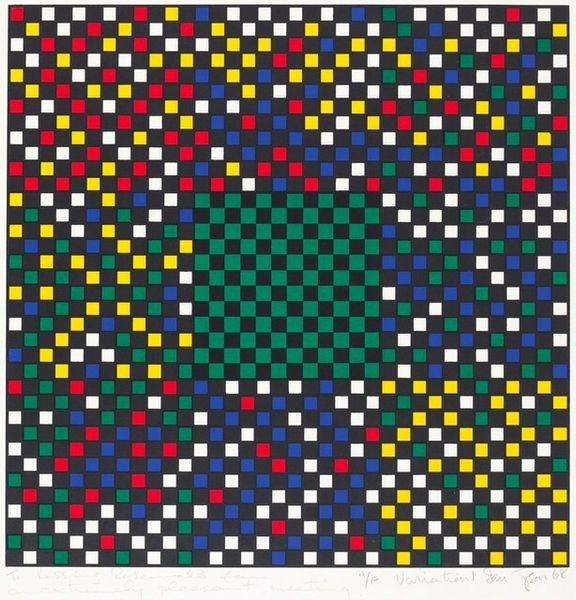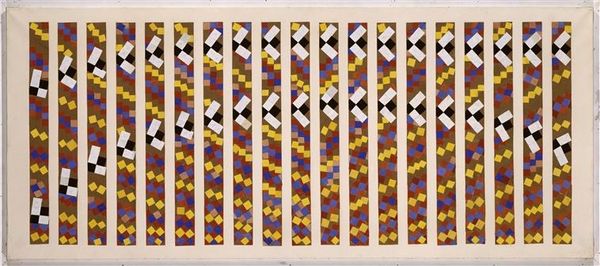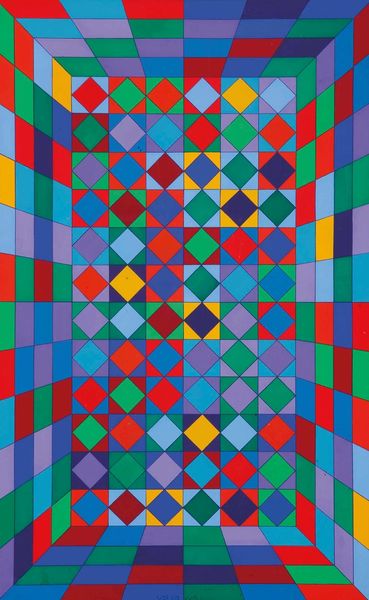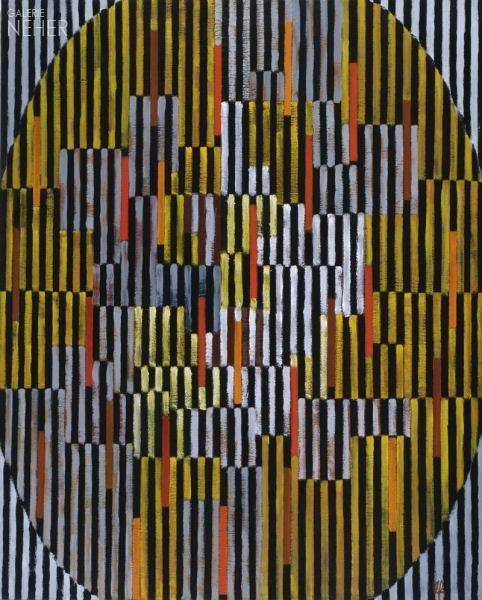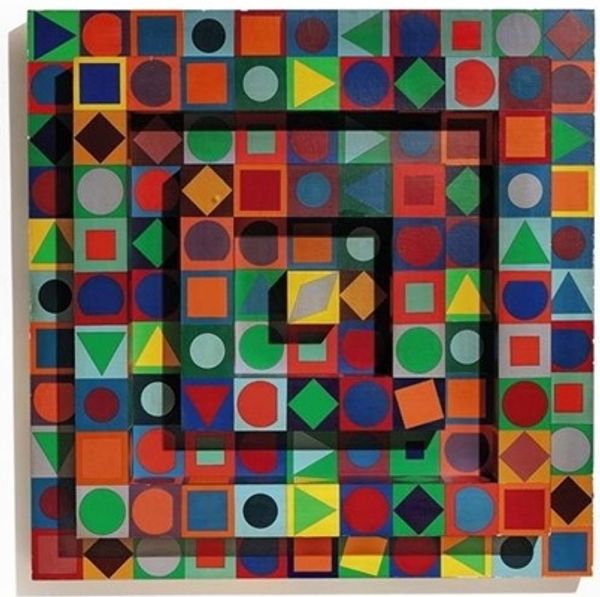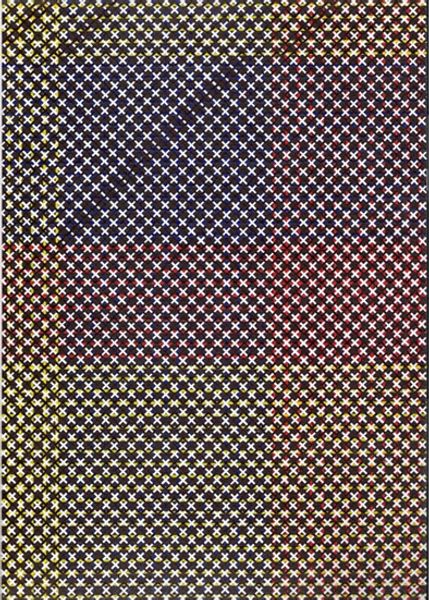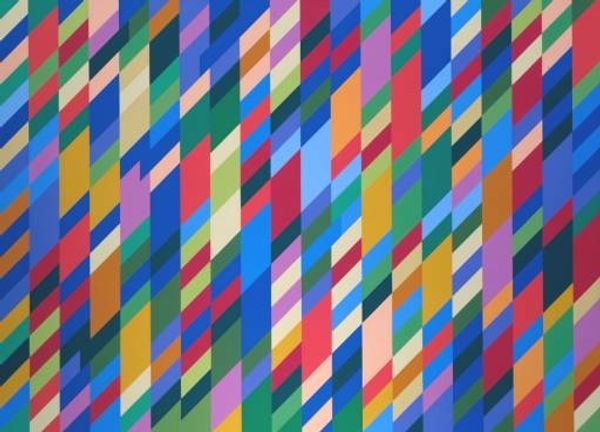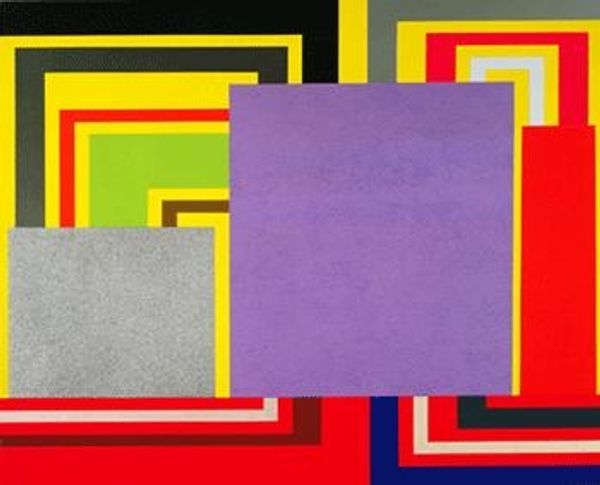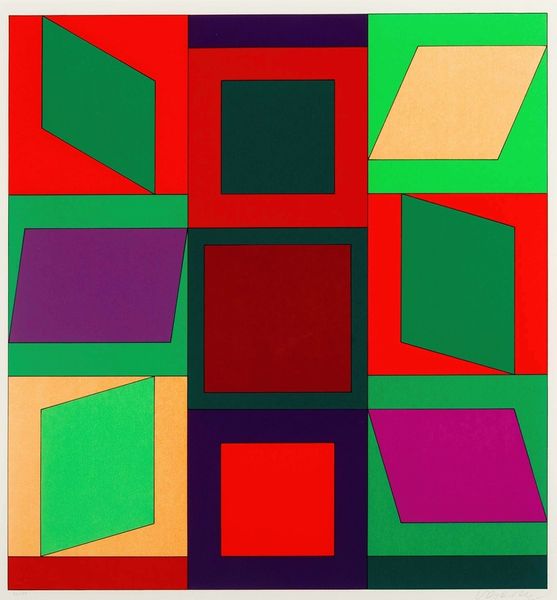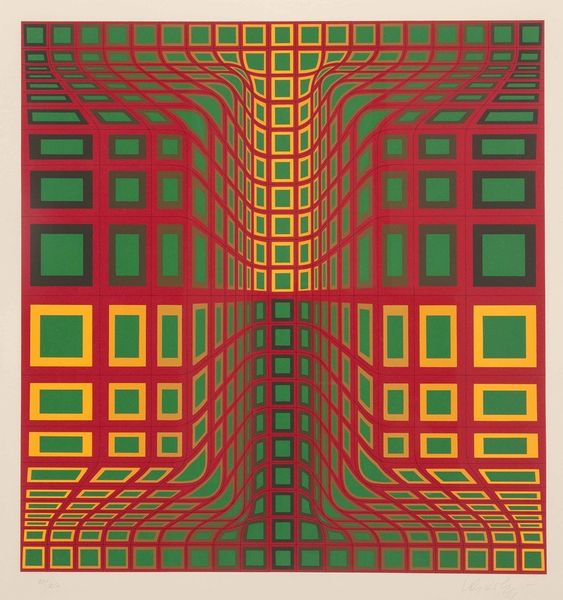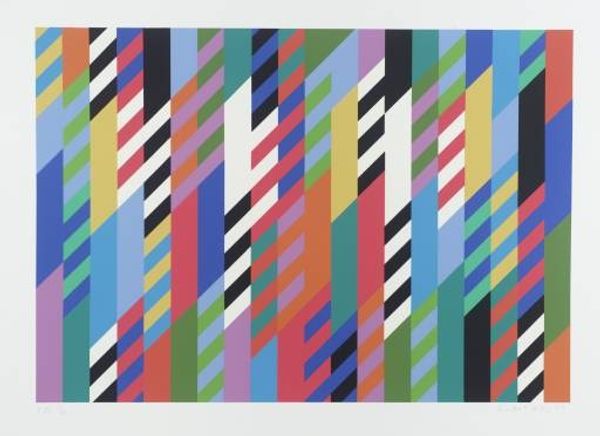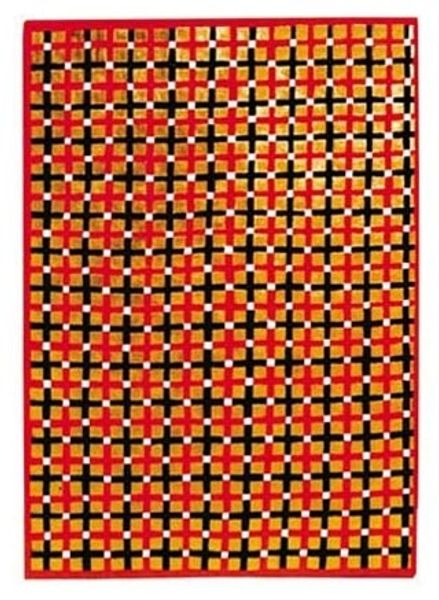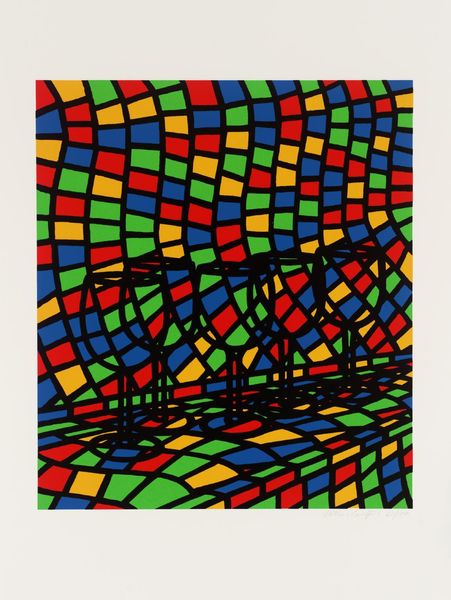
acrylic-paint
#
op-art
#
pattern
#
acrylic-paint
#
geometric pattern
#
abstract pattern
#
geometric
#
geometric-abstraction
#
repetition of pattern
#
abstraction
#
hard-edge-painting
Copyright: Alfred Jensen,Fair Use
Editor: This is "The Pythagorean Theorem," an acrylic on canvas painting by Alfred Jensen, created in 1964. The geometry feels so intense; almost overwhelming at first glance. What do you make of Jensen's particular approach here? Curator: Jensen was deeply engaged with systems – not just mathematical ones like the Pythagorean Theorem, but also those derived from calendars, numerology, and colour theories. The grid structure is so insistent, so present, almost like a commentary on the very act of structuring knowledge. Where does this impulse for order come from? Editor: I hadn't considered that! It makes me think about how systems can both liberate and confine thought. Do you see any political dimension to that in this painting? Curator: Absolutely. Think about the mid-20th century, the rise of computers and complex algorithms. Jensen, through his art, might be asking: who controls these systems, and how do they shape our perceptions and behaviours? Are we truly free within these imposed structures? The hard-edge abstraction he uses only amplifies this questioning. Editor: The colours are quite vibrant. Do they contribute to this dialogue about power? Curator: Yes, definitely. The seemingly straightforward application of color within geometric boundaries can represent pre-set boundaries assigned by power structures and ideologies. It reflects how these 'rules' impact identity formation and experience within the wider context of society and the individual. Can you imagine how these kinds of rules shape access to education, resources, and, ultimately, freedom? Editor: It's fascinating to view geometric abstraction through such a lens! It moves beyond pure formalism into social commentary. Thank you, this opens up new ways of perceiving such structured artwork. Curator: Absolutely, seeing art as enmeshed with culture encourages dialogues that are meaningful and ever-evolving. It challenges us to keep questioning.
Comments
No comments
Be the first to comment and join the conversation on the ultimate creative platform.
